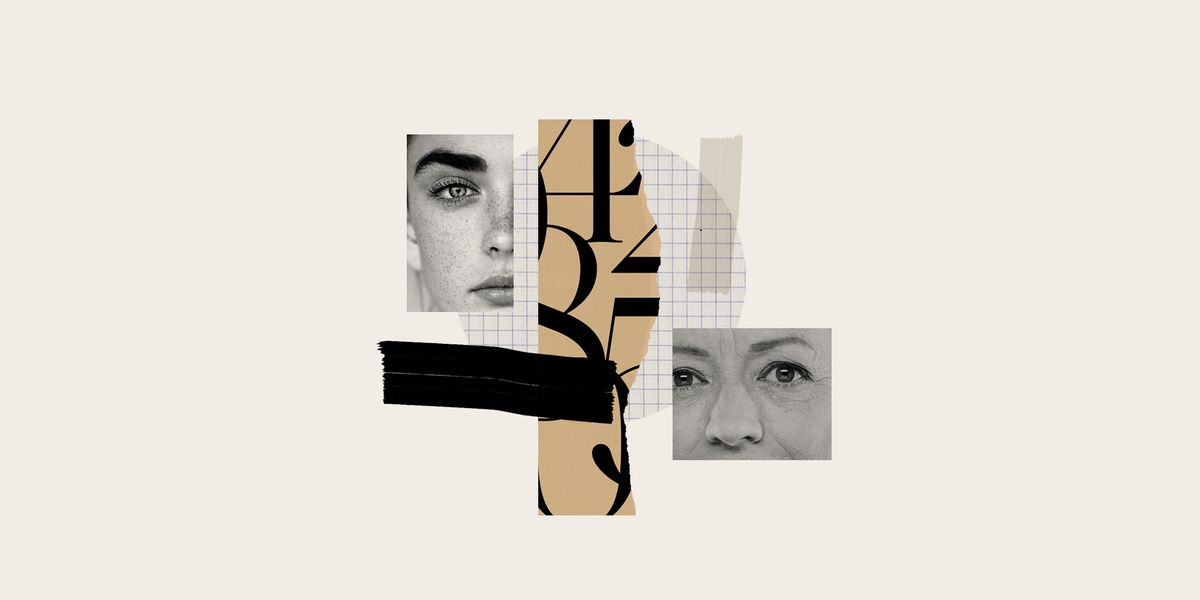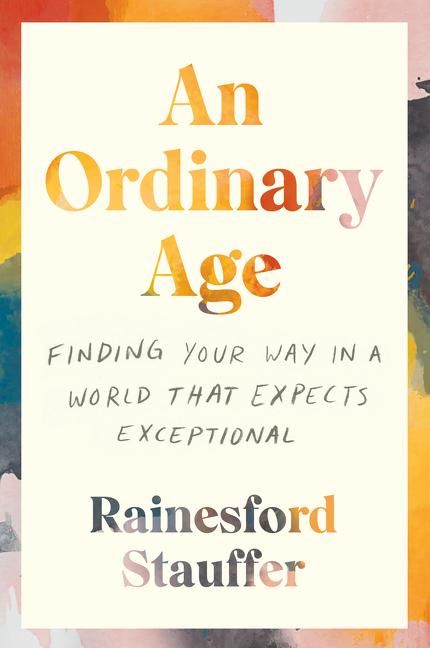Once, in the span of a single conversation, a friend nearly two decades older than I am and I realized we were both running out of time. I clearly was not going to have my life “figured out” by age 25 or 30 or whatever the appropriate marker is. While she was grappling with the sensation, spurned by a society that values youth as if it’s a moral high ground, that her work had less value the older she got. In both directions, our mutual realization highlighted a line of thought embedded in society: the best parts of our lives, selves, bodies, careers, and identities should be squished into a single decade, the narrow window between age 20 and 30 when we’re neither “too young” to understand or “too old” to be relevant. This fixation on “being young”—aka in your twenties—places timestamps on our worthiness that seem to decrease as the number of birthday candles on our cakes increase.
It startled me how embedded this ageism was in my consciousness throughout my whole life. Despite feeling entirely unprepared to sign on a dotted line for loans and decide what to do with my life, I felt pressured to go to college at age 18. I thought by 25, I had to be settled into a job, apartment, and a routine where I took the dog out after work. I figured I would have a steady relationship, if I wanted one, and have accomplished any dreams beyond the context of my day job by 30. Unsurprisingly—since circumstances and personal changes alter the best-laid life plans all the time—that isn’t actually how my life unfolded, despite pressure to ensure it did. What was surprising, however, was the parade of remarks from former professors, neighbors, and well-intentioned friends, most telling me I was “running out of time.”
Why am I trying so hard to do whatever it is by age 30? Why 30? I found myself wondering. What happens after that?
As I spent time researching and reporting on young adulthood, and transitions during that time of life, it struck me how harmful the glorification of youth is—including to young people. We have a million markers of how this manifests: There are infamous lists of everything we should’ve done by 30, including so-called markers of adulthood like buying homes and having kids, that always seem to lack acknowledgment of social and economic context in which those decisions might be unfolding. There’s a cultural fixation on “high achievers” who accomplished an extraordinary amount before they made it to the third decade of their lives, making the rest of us wonder how on earth they saved or did that much. There are the omnipresent “generation wars,” which fail to acknowledge nuance in life experiences or even similarities that can’t be condensed to a soundbite on skinny jeans and TikTok. We’re never without news clips on wunderkinds or a 25-year-old who saved a million dollars, implying not that they’re special for having done these things—the so-called impressive part is that they’ve done them while they’re young.
That, in turn, impacts how we think about age. Who told us that having our lives “figured out” by these arbitrary markers of age was the golden rule, anyway? Whose idea was it that every new hobby, experience, and piece of our identities needed to be locked down and perfected as soon as possible—as if our interest in and ability to do these things wouldn’t grow and change as we do? It’s connected to the same line of thought that tells us the older we get, not only the less time we have, but the less important our lives, experiences, and feelings are.
When speaking to friends both older and younger than I am, they pointed out how ageism works in both directions. One friend, a doctor in her late twenties, described patients who doubted her capability and authority, who joked about whether she was a high schooler. Another friend, in her fifties, explained the grief of being pushed out of a volunteering space she loved. She’d taken “ok, boomer” jokes in stride, but her peers seemed to doubt her ability to keep up in terms of energy and technology. Spread in between overt examples is this ageist fixation on timelines: When a timestamp gets slapped on our value, suddenly, it underscores a tenant of capitalism, which is that our value rests only in what we achieve, and when we achieve it. So much of this “accomplish everything early!” stems from capitalism, anyway, including so many of the milestones or indicators of what it means to be a “successful adult.” I wonder at what point we stopped celebrating “growing up” as just growth—something, you’d think, we’d hope for throughout our lives.
In wondering how this fixation on “being young” might tie into ageism, I reached out to Suzanne Degges-White, PhD, LCPC, NCC and professor at Northern Illinois University. “Structural ageism describes the ways in which our culture promotes the interests and the welfare of younger people over or in place of that of older adults,” Degges-White says. According to Degges-White, this occurs in a variety of settings, from corporations requiring retirement at a certain age, to marketing algorithms that intentionally ignore the habits, interests, and values of older adults, as well as media that promotes images of health and well-being as qualities exclusive to young people. I thought of the beauty standards that still populate catalogs and sponsored ads—standards that are often predominantly aimed at white, able-bodied, higher-income young people. As if on cue, I got a targeted email from a dermatologist’s office, offering “preventative Botox” to “stop signs of aging before they start.” There’s nothing wrong with making a cosmetic choice about your body, but there is something wrong with presenting aging as something to be avoided, as if getting older is something we should somehow avoid.
“Ageism is one of the most widely accepted forms of discrimination,” says Elizabeth S. Avent, MA, a Doctoral Candidate in Gerontology at University of Southern California. While the Age Discrimination in Employment Act, which is supposed to protect job applicants and employees age 40 and over from discrimination, has addressed some ageism within the workplace context, age-based bias is deeply embedded into our society structurally. Ageism became even more obvious during the COVID-19 pandemic, in which older individuals—and particularly, as Avent points out, older Black and LatinX individuals—were treated as expendable populations.
It seems obvious how deeply entrenched so much of this is in capitalism. Inequities are embedded across lifespans. The faster someone figures their life plan out, the sooner they can start working in a field, and the more work we can push them to do—dumping extra work on younger workers so they can “prove themselves” and forcing out older workers. The more we tell them that they only have a certain window of time to make the most of life, the harder they will hustle. This way, free time, vacations, and hobbies become luxuries you’ll get later in life after you’ve “made it”—but for those later in life, they often don’t have the resources to pursue those luxuries, either.
It’s a society in which no one wins except the bottom line. Ashton Applewhite, activist and author of This Chair Rocks: A Manifesto Against Ageism, says the idea of generations being pitted against each other is inherently connected to capitalism and exploitation of human beings so companies can make money. “If older and younger workers are both expendable, employers can pit us against each other, squeeze us,” explains Applewhite. It makes the problem an individual one, rather than a structural one. And of course ageism ties into economics and class—as Applewhite points out, class is a significant predictor of who gets to age at all, from resources and support available to pervasive discourse around “successful aging,” most of which turns aging into a problem that we’re supposed to pay to “fix,” Applewhite adds, “at considerable expense.”
That fixation—do it all now, while you still can—also impacts the timelines on which we grow into our lives, and how we age. “We tend to expect everyone to live on the same type of timeline: You go through primary education, go to college, get a respectable career, get married, have children, and own a home,” Avent says. “To achieve the ‘American Dream,’ ideally all before age 30.” Now, with the rise of social media and increase in lists highlighting accomplished young adults, Avent believes “we feel pressured to be extraordinary and believe we are truly successful if we stand out from our peers.” In other words, the earlier, the better. The younger, the better.
I can’t think of a single friend who wishes they were younger, but I do think of the advice I’ve gotten from older friends, mentors, and family members who tell me they wish they would’ve slowed down and savored each phase of life—something that is impossible to do with the tick-tick-tick of the clock of societal expectations, humming in our ear. The idea that the “prime of our lives” is condensed to one, precise period of life seemed like a counterpoint to everything I noticed about examples of aging in my own life. In her fifties, my mom began a new job in a new career sector and picked up playing the piano—a far cry from the mentality that the best days of her life must be behind her. At the same time, I know teenagers who are parenting toddlers and juggling school and work—are we really going to tell them they’re “too young” to have experienced so-called real life?
This doesn’t mean age shouldn’t be acknowledged at all. “We want to recognize and value those differences, not wish them away, but without organizing them into hierarchies of value,” Applewhite tells me. Ironically, everyone I know hopes they’ll get older: it’s not a luxury we all receive. The ageist mentality that only one period counts in our lives, above all the others, feeds systems that thrive on us never feeling like we’re enough—until we’re too much, or “too old.” Maybe if we embraced aging as part of how we grow up and make our way in the world, we’d find value in all of life’s stages, and thwart the pressure-cooker sensation that we’re running out of time. We won’t have “done it all” by 25. We’ll end up with a fuller life, instead.
This content is created and maintained by a third party, and imported onto this page to help users provide their email addresses. You may be able to find more information about this and similar content at piano.io

